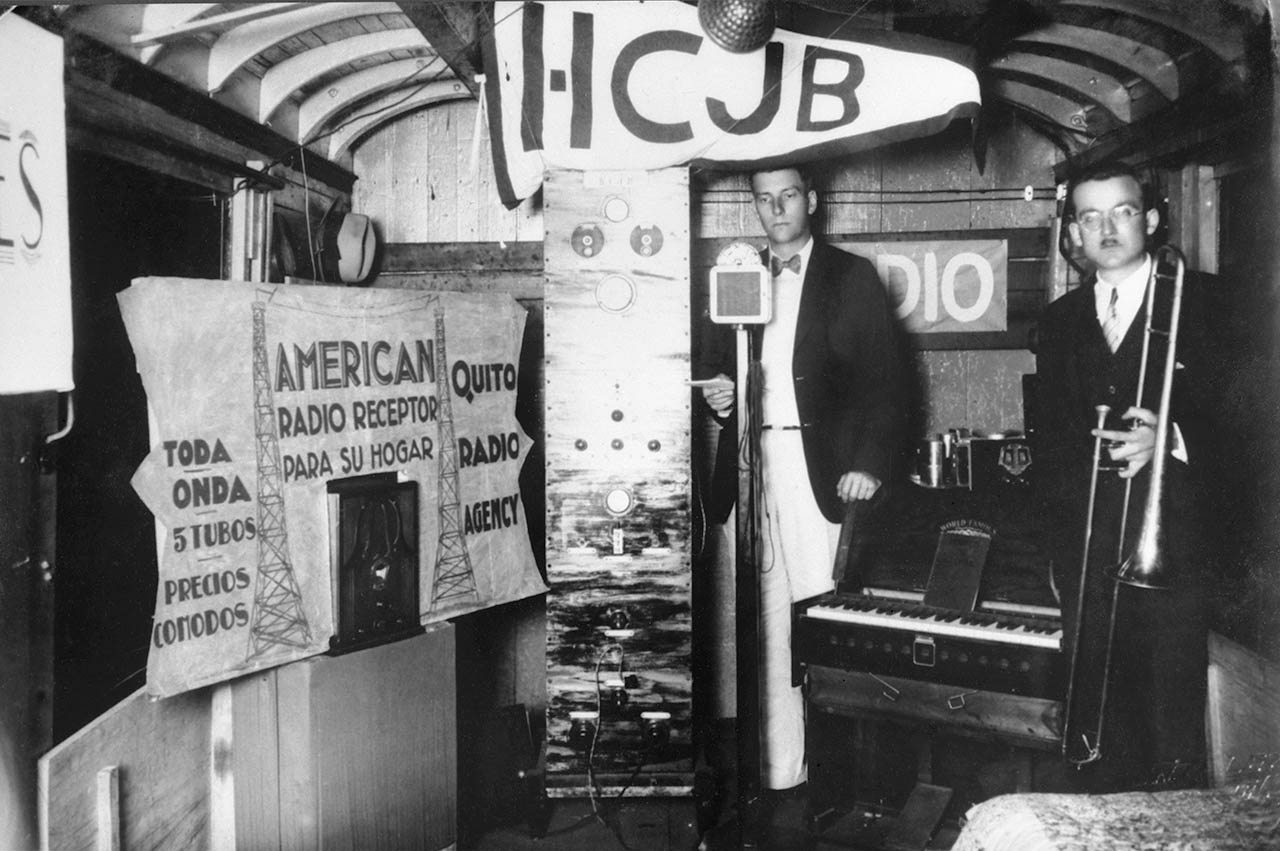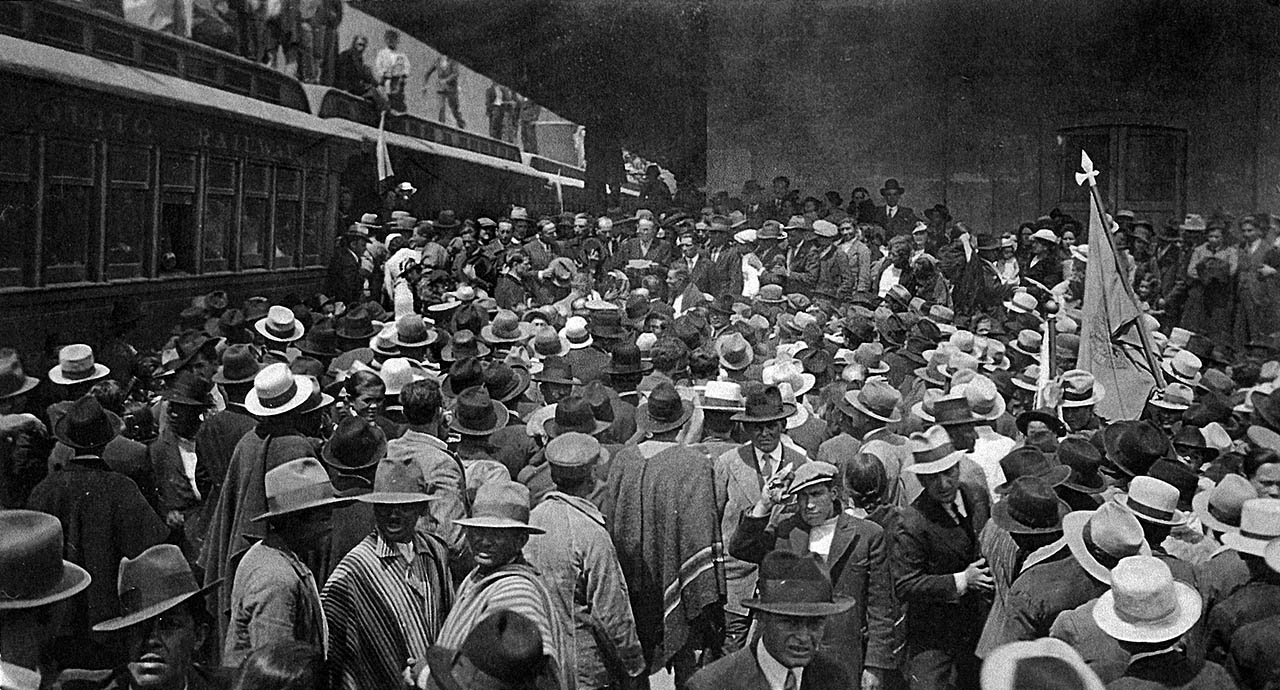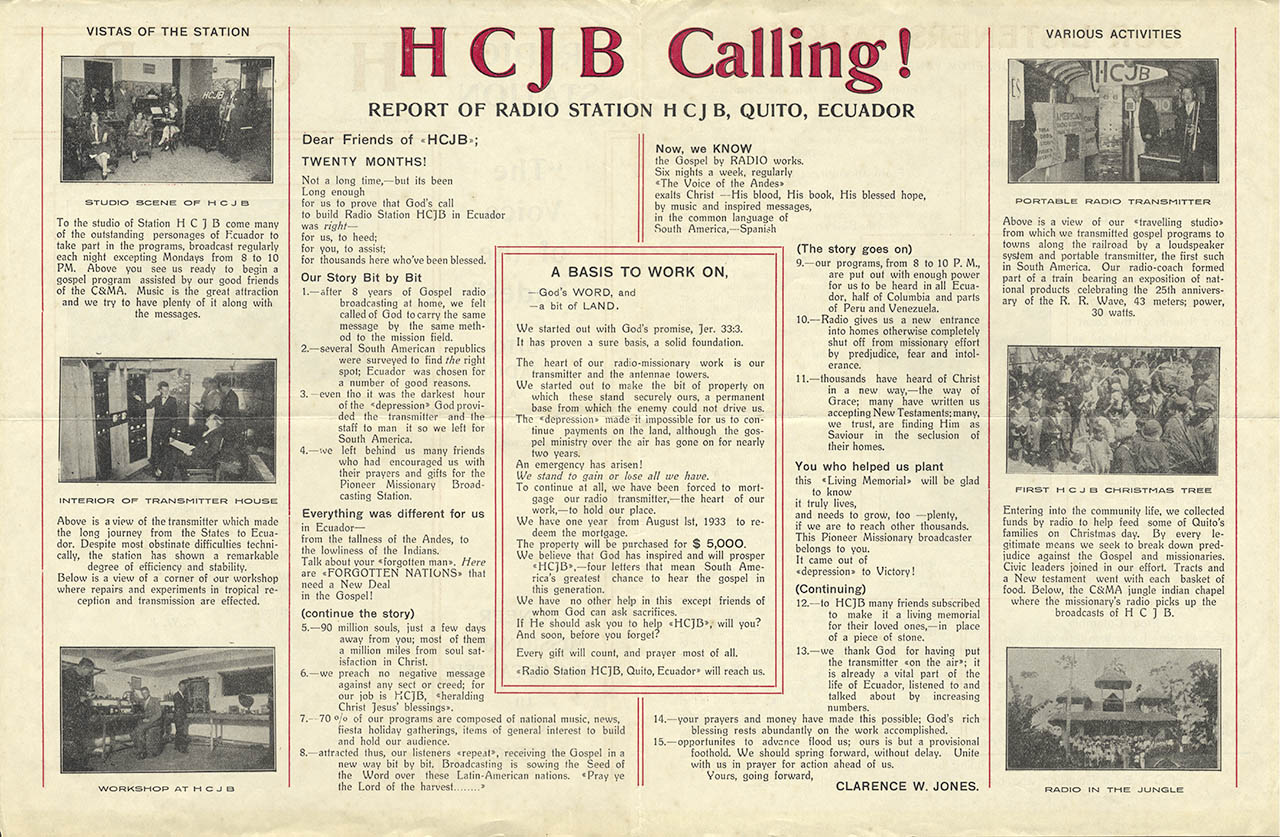 |
In 1933, Radio Station HCJB joined the “Silver Anniversary Exposition Train” commemorating the 25th anniversary of the completion of “the world’s most difficult railroad.”
For two months, the train traveled from Quito to Guayaquil showcasing Ecuador’s agriculture, industry, and commerce.
A specially built HCJB transmitter and loud speaker system aired speeches by dignitaries and live music by Clarence Jones on the trombone, as well as recorded music. Few people along that route had ever seen a radio.

As D.S. Clark demonstrated the marvel of radio, he shared the marvelous story of Jesus to thousands of curious people. Crowds gathered around HCJB’s boxcar and missionaries handed out tracts and portions of Scripture.
Jones Mortgaged the Transmitter
Financial support had dwindled because of the Great Depression. Clarence's sending church apologized for the exceedingly small amount of money they were sending, less than 20% of what they had committed per month. It got worse. The bank holding all of the church's (and Clarence's) funds went under.
Desperate to keep Radio Station HCJB on the air, Clarence Jones risked everything and mortgaged the station's transmitter in 1933.

In spite of the Great Depression, the response to the above newsletter was overwhelming. Funds came in that not only paid off the mortgage on the transmitter, but also the $5000 they needed to purchase the property. By God's grace, Ecuador's Congress made an exemption to foreign owned property laws specifically for HCJB to own property in perpetuity, instead of just 5 years.
The financial strain was not over, however. Clarence taught English at a local school, directed a municipal band and did anything he could to earn money. In 1935, Clarence earned as much money working in Ecuador as was donated to the mission. But God provided enough, and before long, the mission would begin to grow.
Next: 1934 - Radio Circle and the Quito Radio Agency
